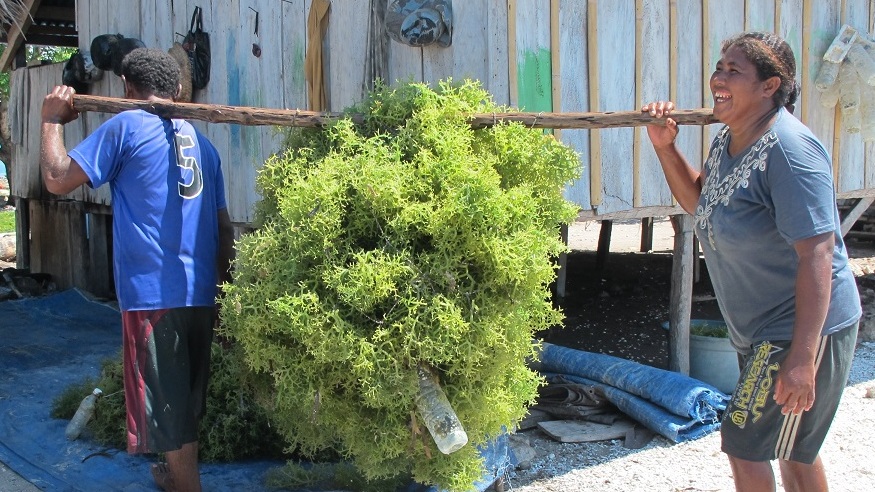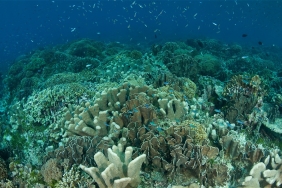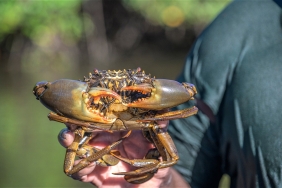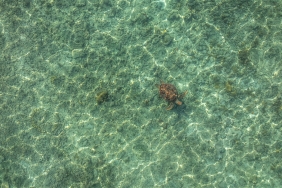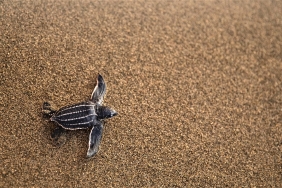ADVANCING A VILLAGE WITH ONE CULTIVATED PRODUCT - MOTIVATION FROM OYAMA VILLAGE IN OKINAWA
By: Idham Malik (Aquaculture Officer, WWF-Indonesia)
The end of 2016 was quite special for three villages in Wakatobi, Southeast Sulawesi. This is because WWF-Indonesia's Aquaculture Program organized a Group Development Training with OVOP (One Village One Product) Business Scheme for the fishermen groups in each village.
They are Lagundi Group in Liya Village, East Mandati Sub-district; Sarope Group in South Ollo Village, Kaledupa; and Dewara Group in Derawa Village, Kaledupa. OVOP means a village development scheme by involving villagers to strengthen the village's superior products, both in terms of quantity and quality, for the welfare of the villagers.
As a speaker, Asdar Marzuki, S.Pi, co-founder of Celebes Seaweed Group (CSG), a cooperative working in the seaweed business, explained OVOP well through the success story of Oyama Village in Okinawa, Japan. Asdar invited the farmers to imagine and dream about future prosperity, through a story about Oyama Village.
In the beginning, Oyama was just a backward village with people who were notoriously lazy. This changed when Hiramatsu, a retired Japanese Ministry official, returned to his village to develop Oyama. Initially, he still relied on rice seeds from the government. But, he thought, rice seeds were not suitable for Oyama. The villagers also could not develop if they only relied on continued assistance.
Hiramatsu invited the villagers to gather at the juku (hermitage) to make a list of natural resources in the village. There were 130 commodity products that could be grown. Out of the 130, the commodities that were thought to bring prosperity to Oyama villagers were chestnuts and plums.
Hiramatsu's first step was to develop a joint strategy to promote Oyama as a Chestnut and Plum Village and design chestnut and plum as the mainstay of Japanese consumption. The development of superior commodities in a village is known as OVOP, which means that a commodity has superior quality and is available in large quantities.
To become a flagship, Oyama develops research on the commodity for product innovation by utilizing Oyama's young people who have graduated from university. They also developed a village cooperative, Konohana Garten.
"With Chesnut and Plum, we can go to Hawaii" - so says the banner unfurled in the corners of the village. Hawaii, which has a temperate climate, is the main destination for Oyama residents.
The training, which was held on December 4-7, 2016, was attended by 70 participants from farmers, local NGOs - FORKANI, and the Wakatobi National Park. "OVOP can be developed in Wakatobi, by promoting seaweed as a mainstay commodity for villagers," said Asdar. "By strategizing how the farmers can work together on a village scale to improve the quality and quantity of seaweed," he continued.
Seaweed farmers must identify their problems and devise strategies to improve their collective welfare. Mapping the quantity and quality of seaweed and its waters is also important in order to calculate its economic value - which must reach the farmers' standard of living.
Collaboration between farmers and the government, local NGOs, extension workers, and the National Park Authority - is important so that groups can increase the quantity of seaweed that is competitive for large collectors or the seaweed industry.
In this training, collectors and industry were present to explain seaweed quality based on industry standards. They provided feedback on the quality of the seaweed produced by the group, so that they can strategize for quality improvement in the future.
Establishing an organized flow of administration and record-keeping, maintaining long-term relationships with buyers - empowering a group to keep making the best strategic and data-driven decisions. With a clear business orientation and the right methodology to achieve the business plan, I am optimistic that the Wakatobi fishermen in Lagundi, Sarope, and Derawa Group can achieve their goals - welfare, and water sustainability.

